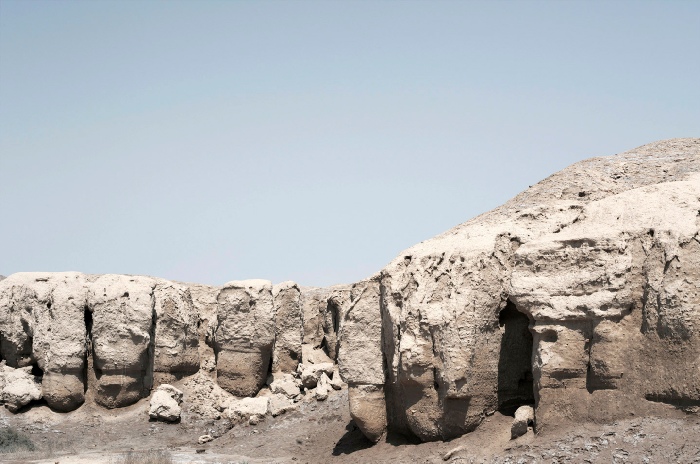Press Release
Let’s Talk About the Weather: Art and Ecology in a Time of Crisis is an exhibition addressing urgent issues around a changing climate, future ecological disaster, and what this means for our present moment. The term Anthropocene has recently been proposed to designate a new geological age that follows from the Holocene, the period designating the last 11,700 years of the Earth's history. As humans move from biological agents, that is as agents affecting their immediate environment to geological agents, affecting weather patterns and planetary biodiversity, a new way of understanding our impact on the planet is needed. The Anthropocene appears, then, as a set of proposals for imagining different ways of being and doing in the world. These ecological issues are beginning to be explored from regional perspectives. Recent developments in art practice and in civic discourse point to an increasing awareness of the urgency of climate change and the importance of activating this discourse in the public sphere.

Let’s Talk About the Weather: Art and Ecology in A Time of Crisis
Guandong Times Museum, Guandong (China)
23.06 - 19.08.2018


© ArtCatalyse International / Marika Prévosto 2018. All Rights Reserved
Exhibition June 23 -
The exhibition includes local and international artists, architects, thinkers, and activists, showing both existing and newly commissioned work. The project raises pertinent questions about how we understand “nature”, our relationship to the non-
How can we better understand the intricate relationship between colonial histories, contemporary conflicts, and climate change? How to create an epistemic system where non-
Amidst this sobering doom and gloom, the necessary work of critique is accompanied by the ever-
Participating artists and collectives:
Marwa Arsanios (USA), Sammy Baloji (Congo), Ursula Biemann (Switzerland) and Paulo Tavares (Brazil), Design Earth (Lebanon, Algeriers), Joana Hadjithomas and Khalil Joreige (Lebanon), Emre Hüner (Turkey), Jessika Khazrik or The Society of False Witnesses (Lebanon), Adrian Lahoud (Australia), Emeric Lhuisset (France), Nicholas Mangan (Australia), Sophia Al Maria (Qatar/USA), Pedro Neves Marques (Portugal), Marko Peljhan (Slovenia), Claire Pentecost (USA), Monira Al Qadiri (Kuwait), Marwan Rechmaoui (Lebanon), Natascha Sadr Haghigian (Portugal), Karrabing Film Collective (Australia), and Zheng Bo (China)
Co-
Emeric Lhuisset, The Last Water War: Ruins of a Future, 2016. Courtesy of the artist.
